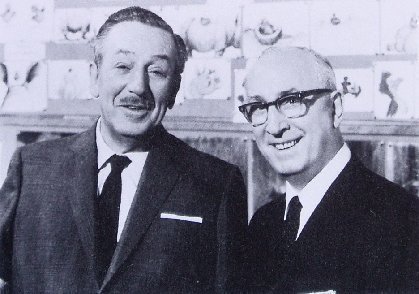
There is some evidence that regular use of supplements may reduce the duration of the common cold, but it does not appear to prevent infection. It is unclear whether supplementation affects the risk of cancer, cardiovascular disease, or dementia. It may be taken by mouth or by injection.
Vitamin C is generally well tolerated. Large doses may cause gastrointestinal discomfort, headache, trouble sleeping, and flushing of the skin. Normal doses are safe during pregnancy. The United States Institute of Medicine recommends against taking large doses.
Vitamin C was discovered in 1912, isolated in 1928, and in 1933, the first vitamin to be chemically produced. It is on the World Health Organization's List of Essential Medicines. Vitamin C is available as an inexpensive generic and over-the-counter medication. Partly for its discovery, Albert Szent-Györgyi and Walter Norman Haworth were awarded the 1937 Nobel Prizes in Physiology and Medicine and Chemistry, respectively. Foods containing vitamin C include citrus fruits, kiwifruit, guava, broccoli, Brussels sprouts, bell peppers, potatoes, and strawberries. Prolonged storage or cooking may reduce vitamin C content in foods.
Medical uses
Vitamin C has a definitive role in treating scurvy, which is a disease caused by vitamin C deficiency. Beyond that, a role for vitamin C as prevention or treatment for various diseases is disputed, with reviews reporting conflicting results. A 2012 Cochrane review reported no effect of vitamin C supplementation on overall mortality. It is on the World Health Organization's List of Essential Medicines.
Scurvy
The disease scurvy is caused by vitamin C deficiency and can be prevented and treated with vitamin C-containing foods or dietary supplements. It takes at least a month of little to no vitamin C before symptoms occur. Early symptoms are malaise and lethargy, progressing to shortness of breath, bone pain, bleeding gums, susceptibility to bruising, poor wound healing, and finally fever, convulsions and eventual death. Until quite late in the disease the damage is reversible, as healthy collagen replaces the defective collagen with vitamin C repletion. Treatment can be oral supplementation of the vitamin or by intramuscular or intravenous injection. Scurvy was known to Hippocrates in the classical era.[ The disease was shown to be prevented by citrus fruits in an early controlled trial by a Royal Navy surgeon, James Lind, in 1747, on board HMS Salisbury. From 1796 onward, lemon juice was issued to all Royal Navy crewmen.
Common cold
Research on vitamin C in the common cold has been divided into effects on prevention, duration, and severity. A Cochrane review which looked at at least 200 mg/day concluded that vitamin C taken on a regular basis was not effective in prevention of the common cold. Restricting analysis to trials that used at least 1000 mg/day also saw no prevention benefit. However, taking vitamin C on a regular basis did reduce the average duration by 8% in adults and 14% in children, and also reduced severity of colds. A subset of trials in adults reported that supplementation reduced the incidence of colds by half in marathon runners, skiers, or soldiers in subarctic conditions. Another subset of trials looked at therapeutic use, meaning that vitamin C was not started unless the people started to feel the beginnings of a cold. In these, vitamin C did not affect duration or severity. An earlier review stated that vitamin C did not prevent colds, did reduce duration, did not reduce severity. The authors of the Cochrane review concluded that:
Vitamin C distributes readily in high concentrations into immune cells, has antimicrobial and natural killer cell activities, promotes lymphocyte proliferation, and is consumed quickly during infections, effects suggesting a prominent role in immune system regulation. The European Food Safety Authority found a cause and effect relationship exists between the dietary intake of vitamin C and functioning of a normal immune system in adults and in children under three years of age.
Several studies found Vitamin C to have specific antiviral effects in which it inactivates the RNA or DNA of viruses or in the assembly of the virus.
To read a lot more, go here: https://en.wikipedia.org/wiki/Vitamin_C
You don't have to turn your oven on to enjoy a slice of one of your favorite desserts! Our No-Bake Cheesecake is an easy cheesecake recipe that'll leave them (and you!) cheering.
- 1 (8-ounce) package cream cheese, softened
- 1/2 cup sugar
- 1 cup (1/2 pint) sour cream
- 2 teaspoons vanilla extract
- 1 (8-ounce) container frozen whipped topping, thawed
- 1 prepared 9-inch graham cracker pie crust
- In a large bowl, beat cream cheese until smooth. Gradually beat in sugar, then blend in sour cream and vanilla. Fold in whipped topping until well mixed.
- Spoon mixture into pie crust.
- Chill 4 to 5 hours, or until set. Keep refrigerated.
1895 – Jack Dempsey, American boxer and soldier (d. 1983)
1931 – Billy Casper, American golfer and architect (d. 2015)
1942 – Michele Lee, American actress
- Belgian Pralines – contain a hard chocolate shell with a softer, sometimes liquid, filling.
- French Pralines – a combination of almonds and caramelized sugar.
- American Pralines – contain milk or cream and are softer and creamier, resembling fudge.
The powder made by grinding up sugar-coated nuts is called pralin. This is an ingredient in many types of cakes, pastries and ice creams. When this powder is mixed with chocolate, it becomes praliné in French, which gave birth to what is known in French as chocolat praliné.












No comments:
Post a Comment